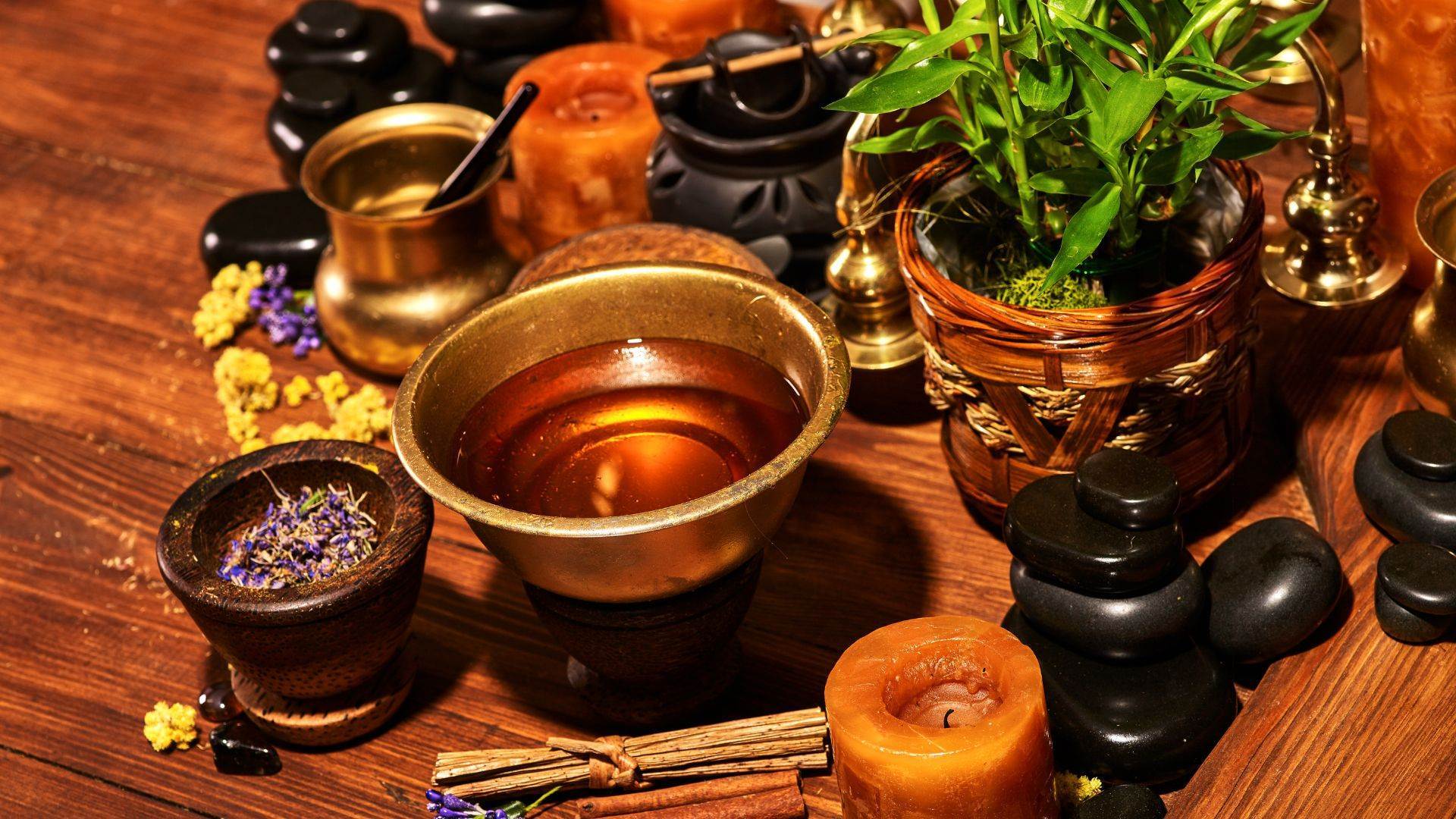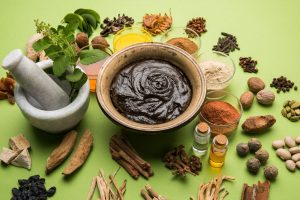In a world increasingly driven by deadlines, digital noise, and constant hustle, stress and anxiety have become almost universal experiences. Millions of people grapple with mental health issues ranging from chronic worry to full-blown anxiety disorders. While modern medicine often turns to pharmaceutical solutions, Ayurveda — the ancient Indian system of holistic healing — offers a natural, time-tested approach to managing stress and anxiety. Rooted in balance, awareness, and harmony with nature, Ayurveda guides us toward sustainable mental well-being without side effects.
Understanding Stress and Anxiety Through the Ayurvedic Lens
Ayurveda views health as a state of balance between the three life forces or doshas: Vata, Pitta, and Kapha. Each individual has a unique dosha constitution (Prakriti), and imbalances in these doshas can lead to both physical and mental disturbances.
When it comes to stress and anxiety:
- Vata dosha (composed of air and space) plays the biggest role. When Vata is aggravated, it leads to restlessness, fear, overthinking, and insomnia.
- Pitta dosha imbalance may cause irritability, frustration, and anger.
- Kapha dosha excess can result in lethargy, emotional heaviness, and depression.
Ayurveda doesn’t just treat the symptoms but works to restore balance in the mind-body system, thereby addressing the root causes of stress and anxiety.
Causes of Stress and Anxiety in Ayurveda
According to Ayurvedic philosophy, the following factors contribute to mental imbalances:
- Irregular lifestyle and sleeping habits
- Poor digestion and diet
- Excessive use of technology and lack of connection with nature
- Suppressed emotions and unexpressed thoughts
- Disconnection from one’s spiritual self
These elements aggravate the doshas, especially Vata, disturbing the nervous system and leading to mental turmoil.
Natural Ayurvedic Remedies to Manage Stress and Anxiety
1. Adaptogenic Herbs for Calm and Clarity
Ayurveda is rich in herbs that nurture the nervous system, reduce cortisol (stress hormone), and restore mental balance:
- Ashwagandha (Withania somnifera): A powerful adaptogen that helps the body adapt to stress, improves energy, and calms the nervous system.
- Brahmi (Bacopa monnieri): Known as the brain tonic, Brahmi enhances cognitive function, reduces anxiety, and promotes clarity.
- Jatamansi (Nardostachys jatamansi): Deeply calming, it supports sound sleep and relieves restlessness.
- Tulsi (Holy Basil): Known for its adaptogenic and immune-modulating properties, Tulsi helps reduce mental fog and anxiety.
- Shankhpushpi: Traditionally used to treat insomnia, stress, and mental fatigue.
These herbs are available in various forms—powders, capsules, teas, or oils—and should be taken under guidance from a qualified Ayurvedic practitioner.
Daily Lifestyle Practices (Dinacharya) to Reduce Stress
Ayurveda emphasizes Dinacharya, a daily routine that supports physical and mental equilibrium. Establishing a rhythm in life is especially beneficial for calming Vata and managing anxiety.
- Wake up early (before sunrise): This aligns your body with natural cycles and sets a calm tone for the day.
- Oil pulling and self-massage (Abhyanga): Massaging your body with warm sesame or Brahmi oil helps soothe the nervous system.
- Gentle exercise or yoga: Encourages circulation and mental clarity. Even 20–30 minutes of walking, stretching, or yoga can work wonders.
- Mindful eating: Eat meals at regular times, avoid overeating, and include warm, nourishing foods.
- Limit digital distractions: Excessive screen time overstimulates the mind. Set boundaries for tech use.
Ayurvedic Diet for a Calm Mind
What we eat affects how we feel. Ayurveda recommends a Sattvic diet—pure, fresh, and light foods that increase clarity, compassion, and calmness.
Foods that calm the mind and reduce anxiety:
- Warm, cooked foods like soups and stews
- Whole grains such as rice and oats
- Ghee (clarified butter), which nourishes the brain and nerves
- Herbal teas like chamomile, tulsi, and licorice
- Sweet fruits such as ripe bananas, mangoes, and dates
Foods to avoid:
- Cold, raw, and dry foods (increase Vata)
- Excessive caffeine and alcohol
- Spicy, fried, and processed foods
Eating in a peaceful environment, chewing thoroughly, and focusing on your food can further enhance mental well-being.
Yoga and Pranayama (Breathwork) for Mental Harmony
Ayurveda and yoga are sister sciences. Gentle yoga asanas and specific breathing techniques (pranayama) are powerful tools for reducing stress.
Beneficial Asanas:
- Balasana (Child’s Pose)
- Viparita Karani (Legs-Up-The-Wall)
- Sukhasana (Easy Sitting Pose)
- Shavasana (Corpse Pose)
Pranayama Techniques:
- Anulom Vilom (Alternate Nostril Breathing): Balances the brain hemispheres and calms the mind.
- Bhramari (Humming Bee Breath): Relieves anxiety, anger, and restlessness.
- Deep Belly Breathing: Encourages parasympathetic activity (relaxation mode).
Even 10 minutes of daily breathing exercises can have a significant impact on stress levels.
Meditation and Mindfulness
Ayurveda places great importance on the mind (Manas). Meditation is not just a relaxation technique; it is a way to bring the mind into stillness and awareness.
- Mantra meditation (chanting sacred sounds like “Om” or “So-Hum”) calms mental chatter.
- Mindfulness meditation involves observing your thoughts without judgment, training the mind to stay present.
These practices promote inner peace, clarity, and emotional resilience.
Aromatherapy and Ayurvedic Oils
The sense of smell is deeply connected to the brain’s limbic system, which governs emotions. Ayurveda uses essential oils and herbal blends to influence mood and nervous activity.
- Lavender and sandalwood oil: Reduce anxiety and promote sleep.
- Brahmi and jatamansi oil: Used in head massages to calm the mind.
- Diffusing calming oils in your home or applying them during self-massage can create a healing atmosphere.
Case Example: Healing Stress the Ayurvedic Way
Consider Ritika, a 35-year-old working mother dealing with constant stress, fatigue, and sleep disturbances. Modern medication offered temporary relief but made her feel drowsy and disconnected.
With Ayurvedic intervention:
- She adopted a Vata-balancing diet
- Started practicing daily Abhyanga with Brahmi oil
- Took Ashwagandha and Shankhpushpi under supervision
- Began a simple yoga and meditation routine
In two months, she experienced better sleep, reduced anxiety, and a renewed sense of control over her life.
Conclusion: Ayurveda — A Gentle Path to Inner Peace
Stress and anxiety are part of life, but how we respond to them makes all the difference. Ayurveda offers not just treatment but transformation—a complete mind-body-spirit system to cultivate balance, resilience, and inner peace.
Instead of suppressing symptoms, Ayurveda invites us to listen to our body, honor our emotions, and nourish our entire being with nature’s wisdom. With consistency and patience, these ancient practices can bring modern minds back into harmony.
“The natural healing force within each of us is the greatest force in getting well.”
— Hippocrates (a belief deeply aligned with Ayurvedic philosophy)

